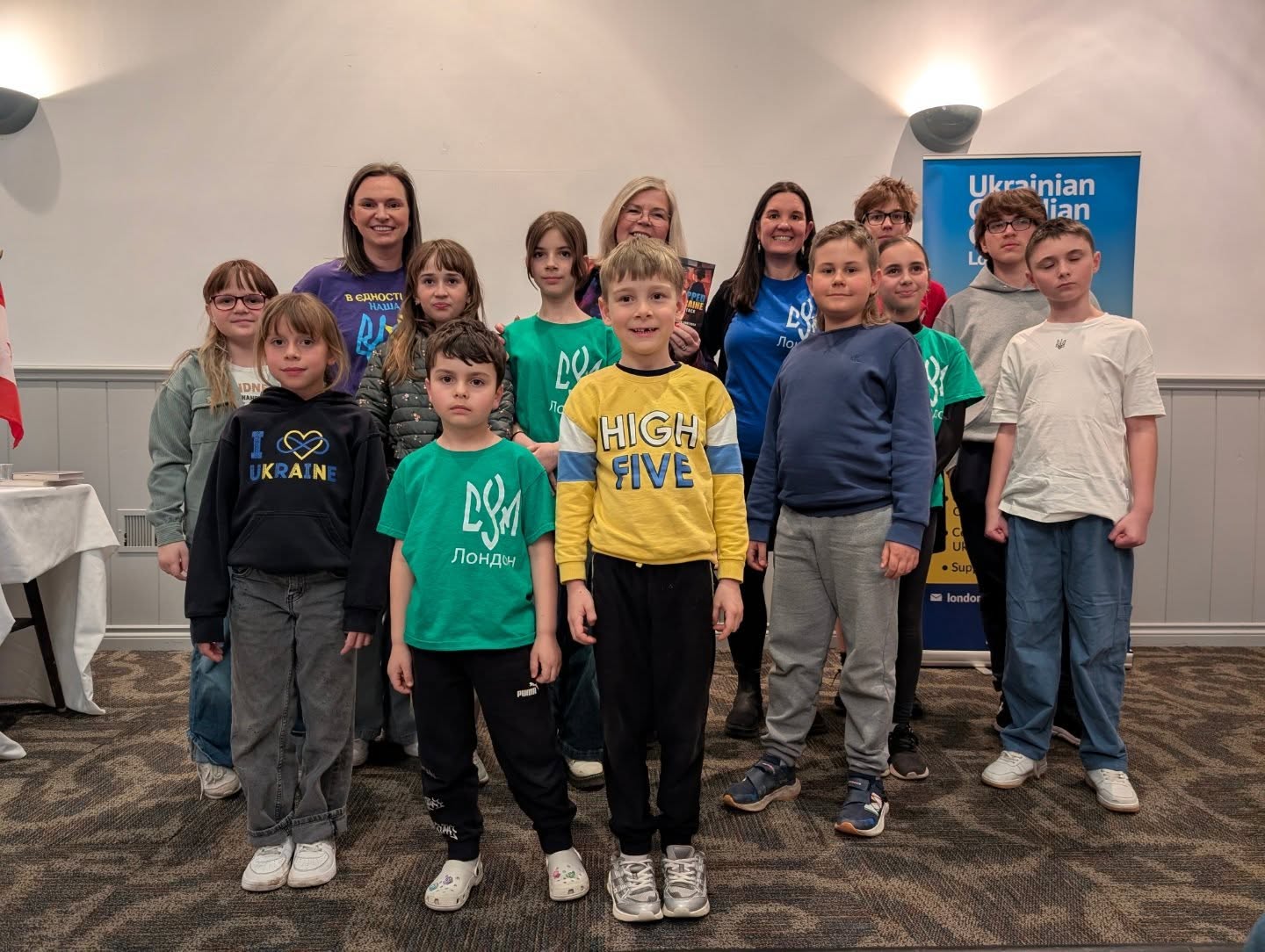
CYM London

writes about war from a young person's view #bannedbyrussia

Thank you so much, Olha Nowosad and all of the organizers for such a wonderful event last night. Coming back to the London Ukrainian Centre felt like coming home because I spent many a Saturday night here, at zabavas. It was a great way to get more use out of old bridesmaids’ gowns.
Here are some pics of the evening.
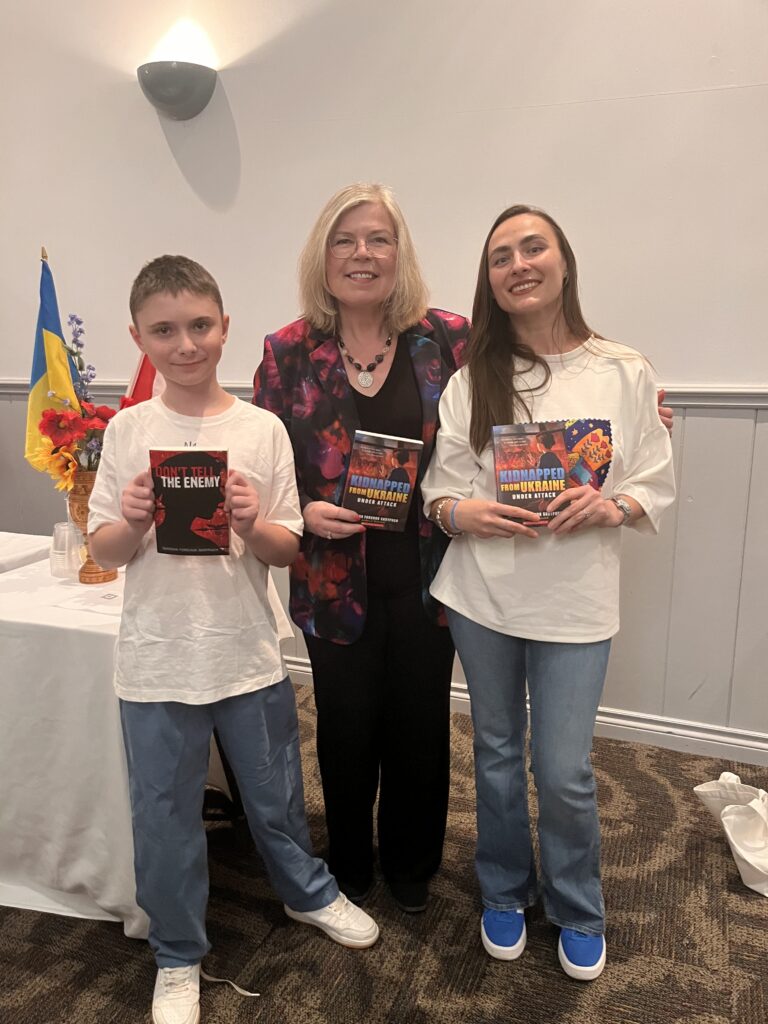
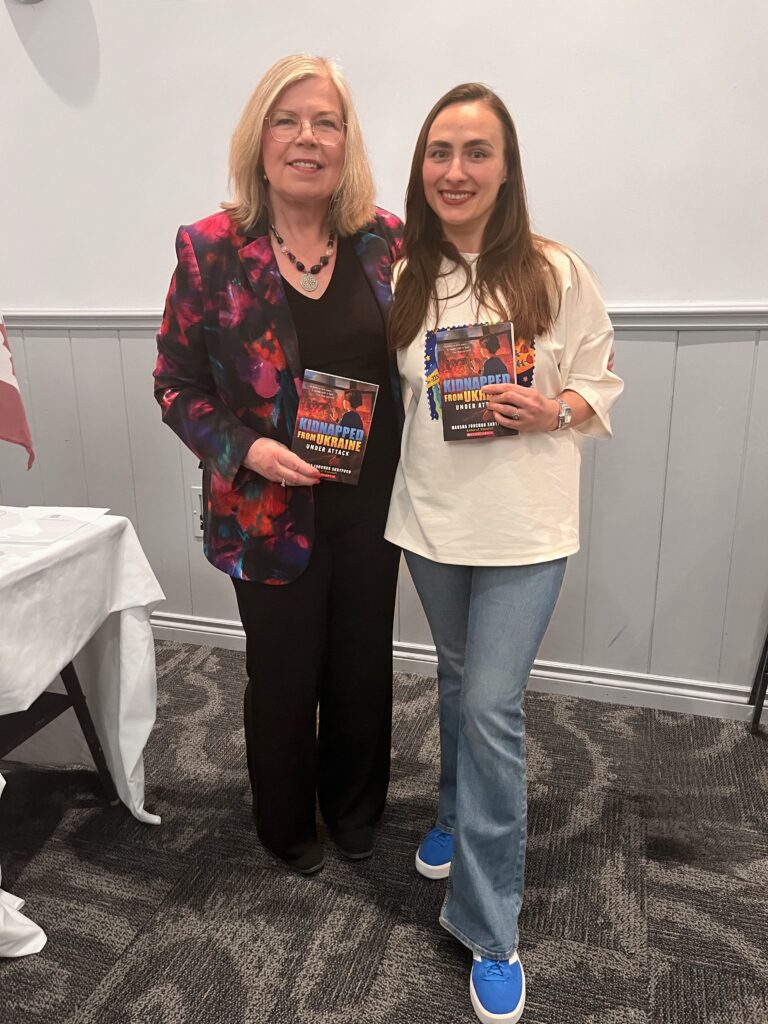
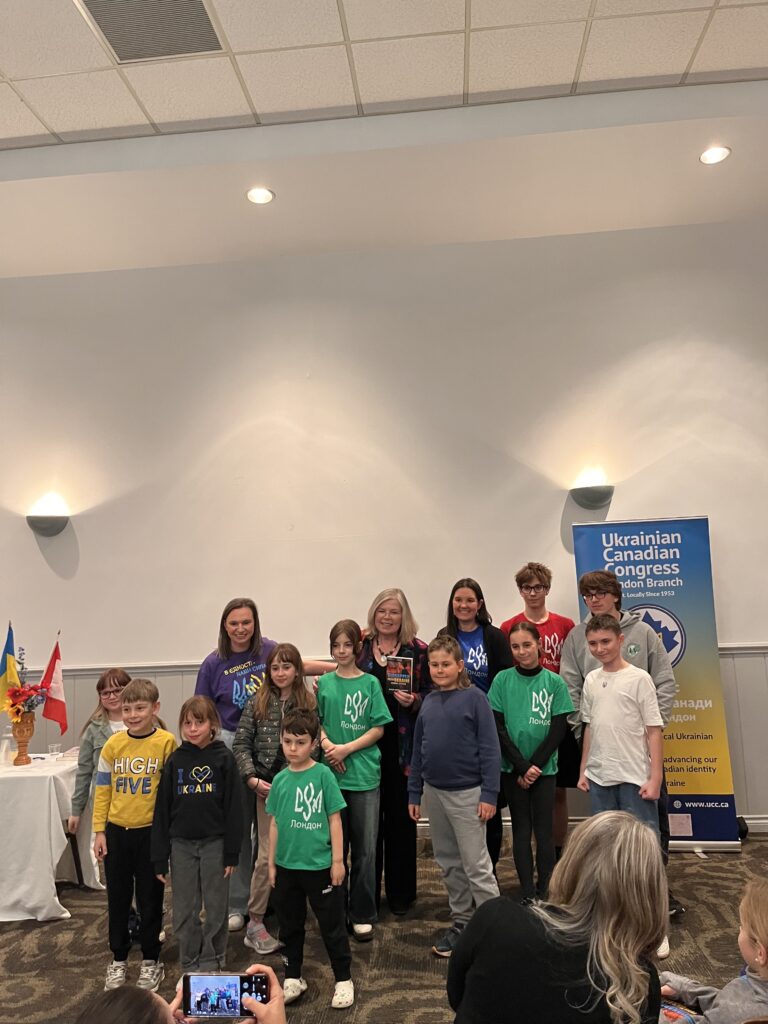
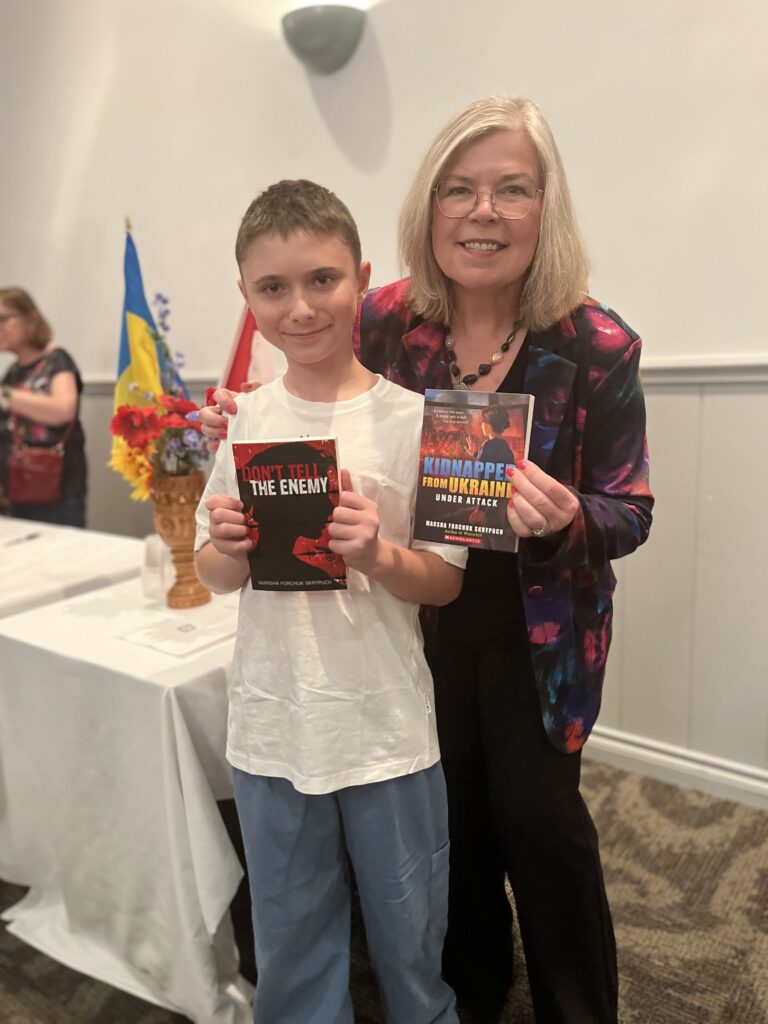
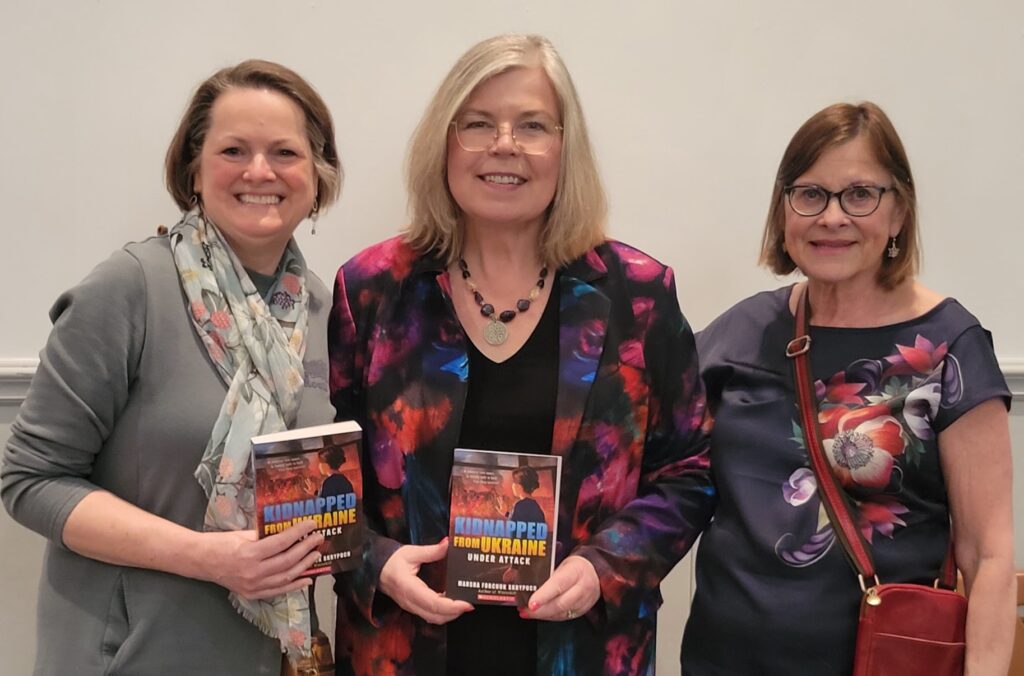
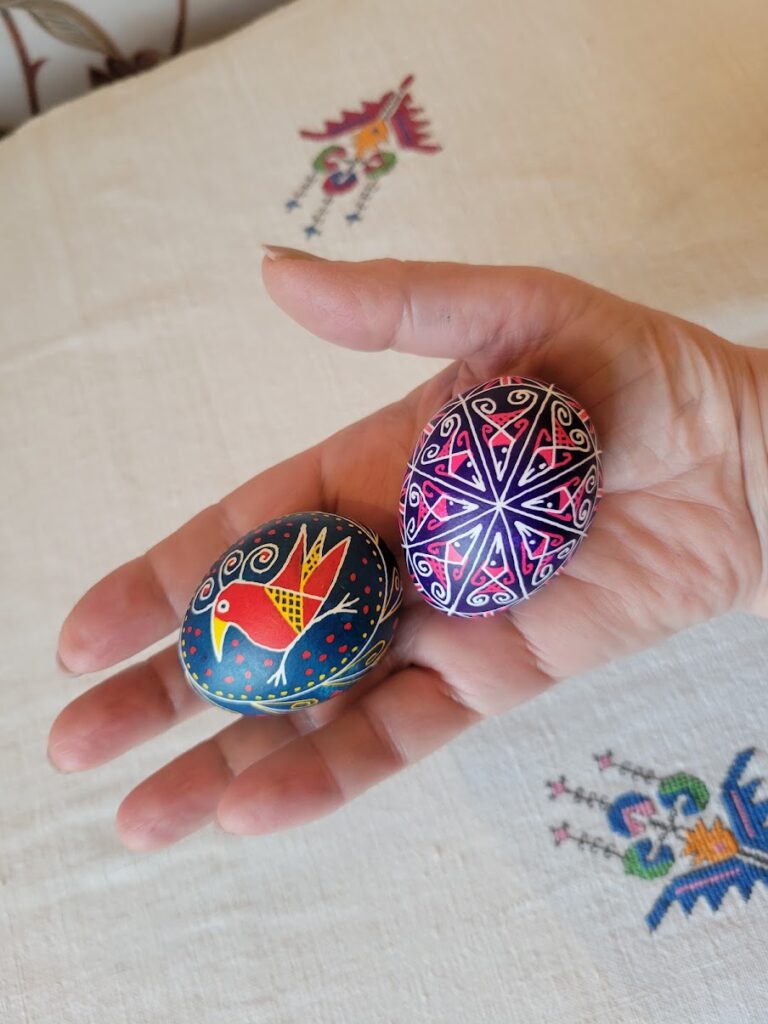
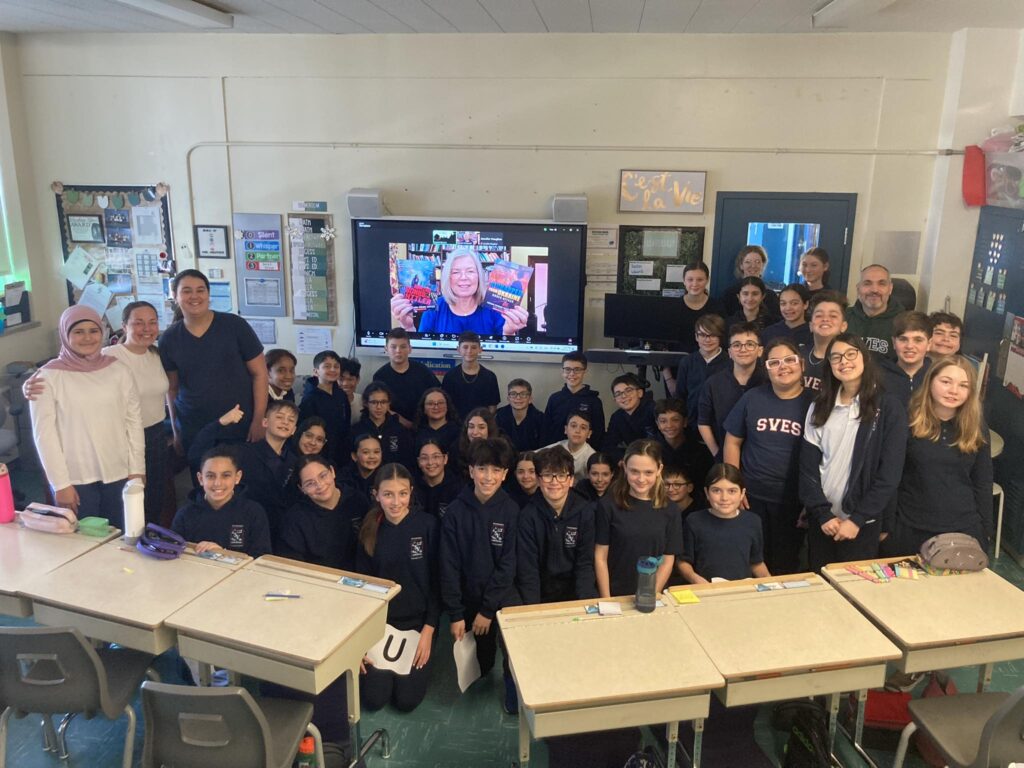
It was so nice to visit with St. Vincent ES students and discuss overcoming personal challenges, empathy and compassion, World War II and the war in Ukraine. Students had lots of questions about Making Bombs for Hitler, Stolen Girl and The War Below.
A few weeks ago, Paulette MacQuarrie interviewed myself and Chrystyna Lucyk-Berger for her podcast about our middle-grade novels set during Russia’s war on Ukraine. This is an abridged video version.
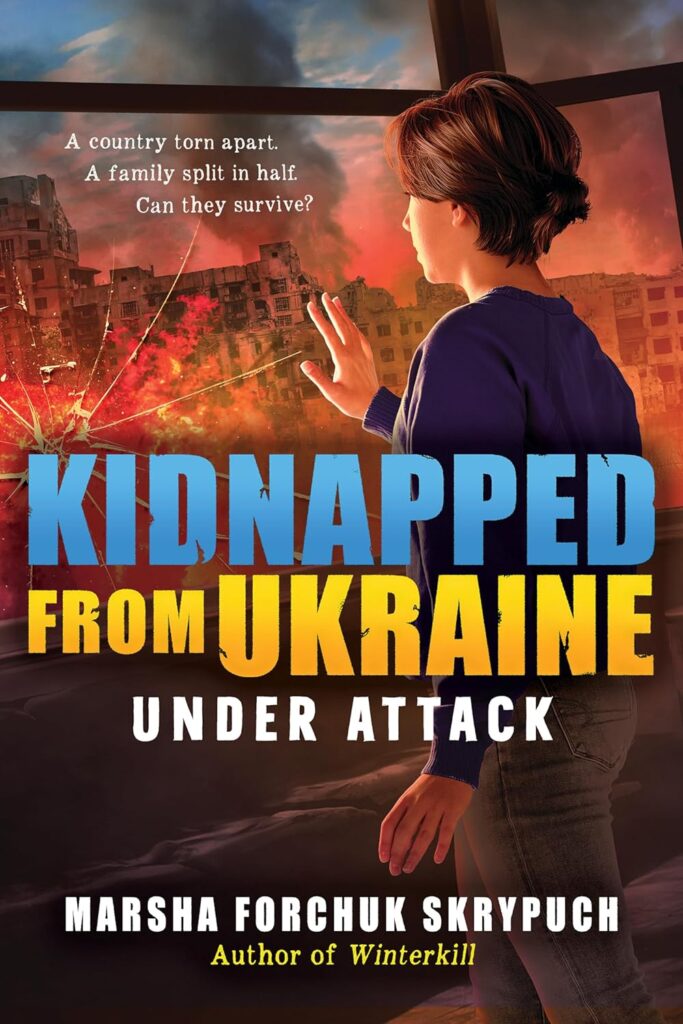
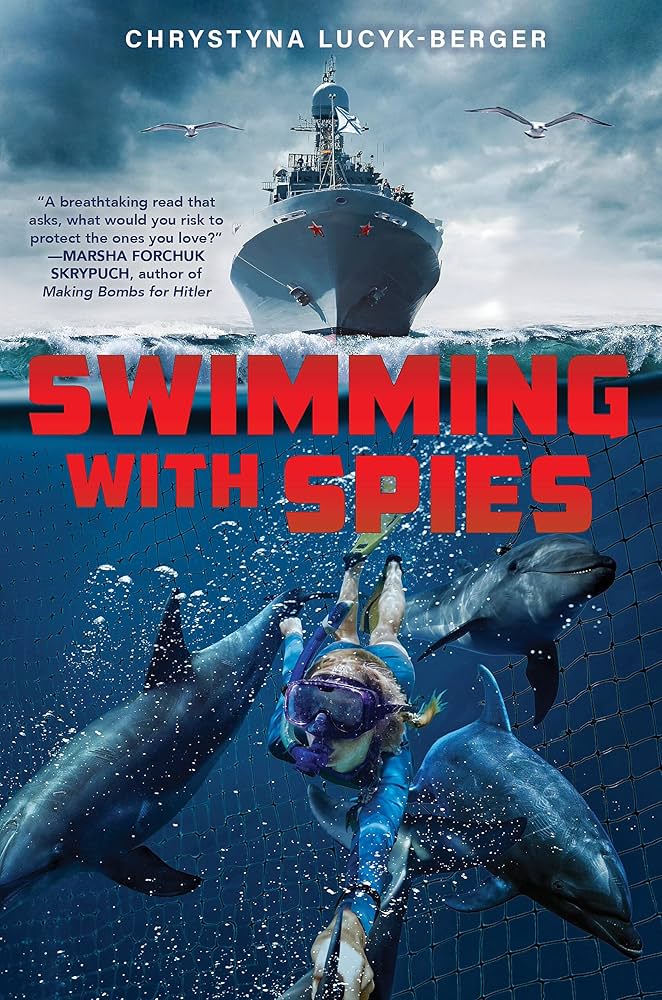

In mid February I had a virtual visit with 6th grade students in Quebec. There were so many questions that I couldn’t answer all of them before the bell rang so I told their teacher I’d be happy to answer by email. Here’s our exchange:
Dear Ms. S, So nice to hear from you! I loved visiting with your students. Thank you so much for donating to the Canada-Ukraine Foundation and thank you for all that you do to encourage a love of reading with your students.
As to your students’ awesome questions, here are the answers:
Question one: Out of the trilogy including Stolen Child, Making Bombs for Hitler, and The War Below, which book is your favourite? – from Luca.
Dear Luca, I love each of these novels for different reasons, but I would have to say that The War Below is my favourite, partly because Luka was such a strong and unexpected character who walked into Making Bombs and was so important to Lida that I had no choice but to give him his own book. Also, the opening scene, where he’s hiding among corpses, is my all-time favourite opening book scene.
Question two: Why do you like writing books? – from Marley
Dear Marley, I love shining a light on people who have lived through extraordinary times but who have been ignored. I think the more we know about other people’s struggles, the better we’re able to deal with our own struggles. Whenever I finish writing a book, I’m glad to finally write The End and I really try to take a break, but then another story shows itself to me and I have to write it. I have to find out more about that person and their circumstances — to honour that experience, and to share it. If I didn’t write these stories into books I think that my head would explode from holding them all in!
Question three: Which character in which story can you relate to more? – from Alexia
Dear Alexia, the character that I most relate to is Larissa/Nadia/Gretchen in Stolen Girl/Stolen Child. The reason is because a lot of the scenes in this book relate to my own life. The scenes in the Brantford Public Library are inspired by my own trips to that same library because that’s where I taught myself how to read, and in fact, many of the books that Nadia selects are the ones that I selected. The librarian is also based on real librarians from my childhood — their kindness, empathy, and their conviction that loving books meant loving life. Nadia walks through the streets of my childhood — her in the 1950s, and I did that in the 1960s. The local castle (Wynarden Castle) she passes is one that I was obsessed with as a child. I was bullied as a child in elementary school, and so we share that as well. Also, the inspector at the school is based on a music supervisor who was a nun who would go from school to school. Her name was Sister Noella and I was terrified of her as a child, but after she retired, I visited her and interviewed her for the newspaper. Here’s the article:
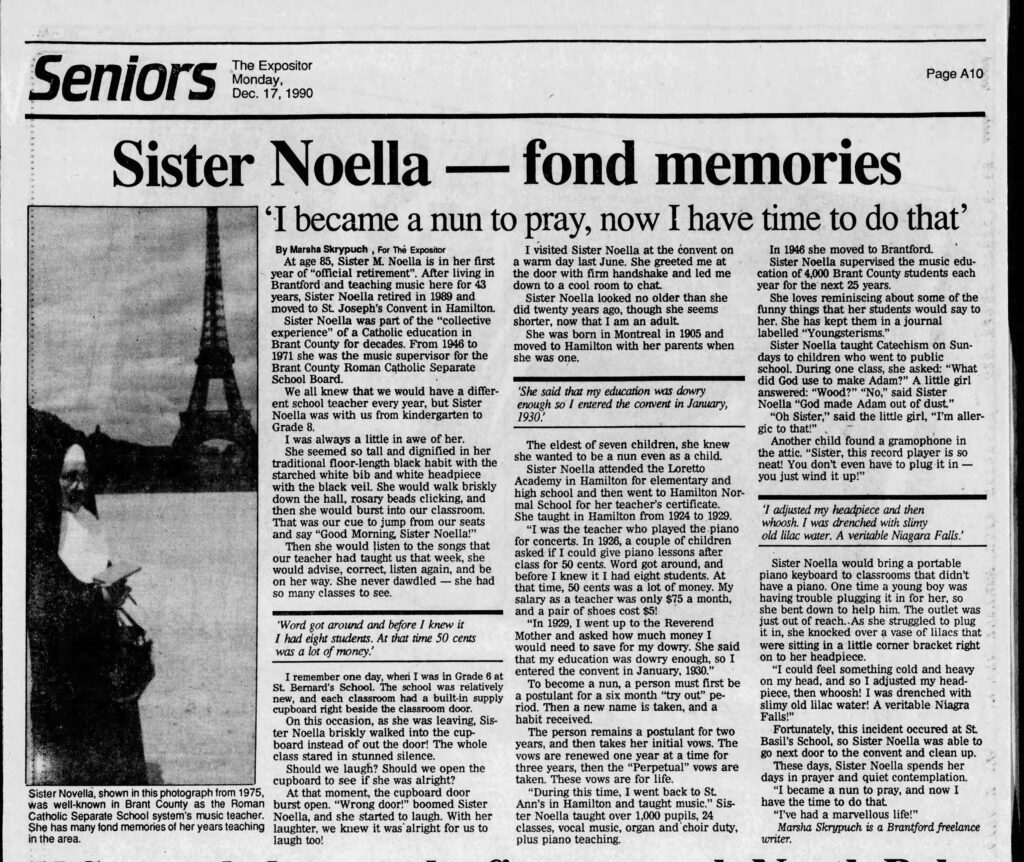
Here’s the real castle in Brantford:
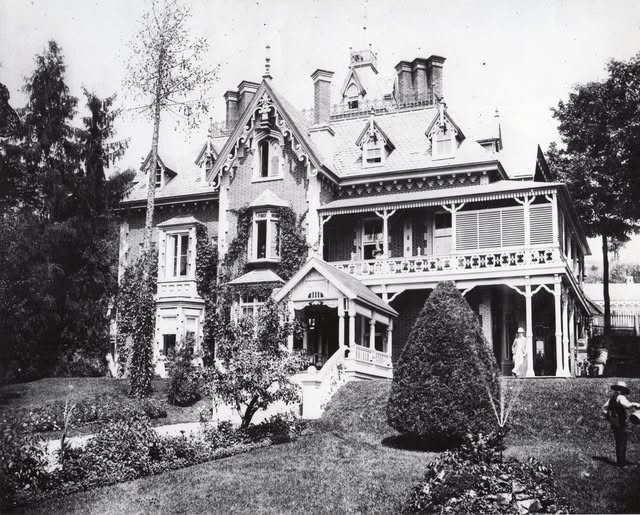
I had such a wonderful visit with 5th grade students from Craig Elementary School in Georgia who were reading Making Bombs for Hitler and studying WWII. We compared the connections of what happened then and what is happening now with Russia’s war on Ukraine. We talked about revisions, research, and movies in your head. Check out these pics!
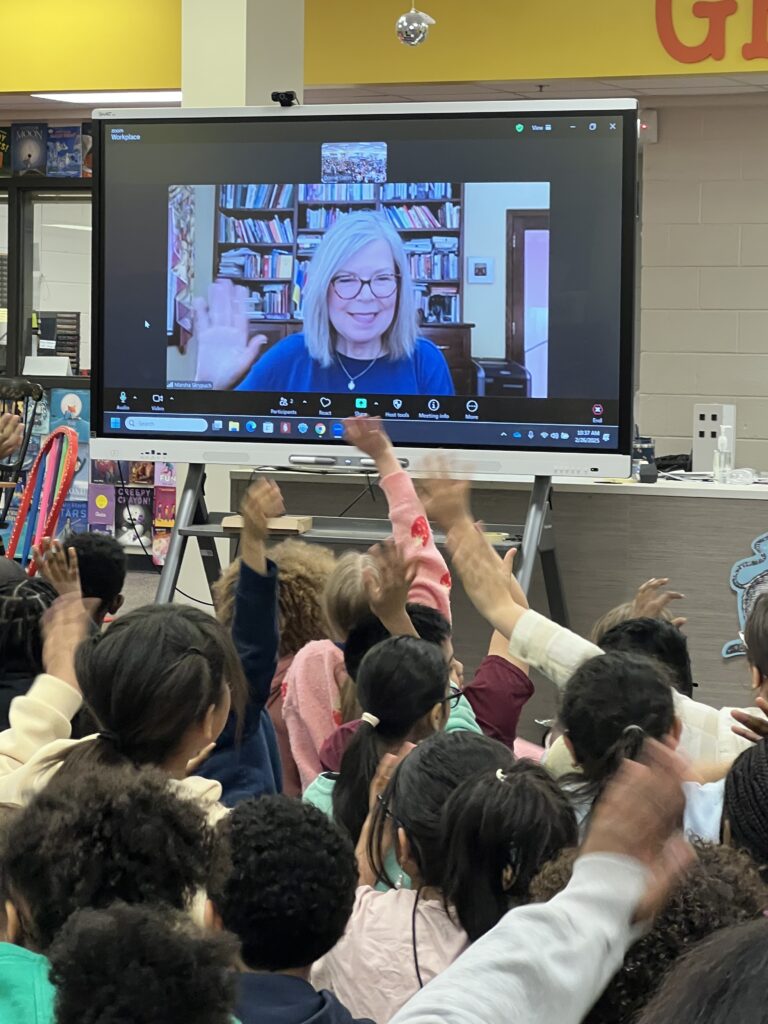
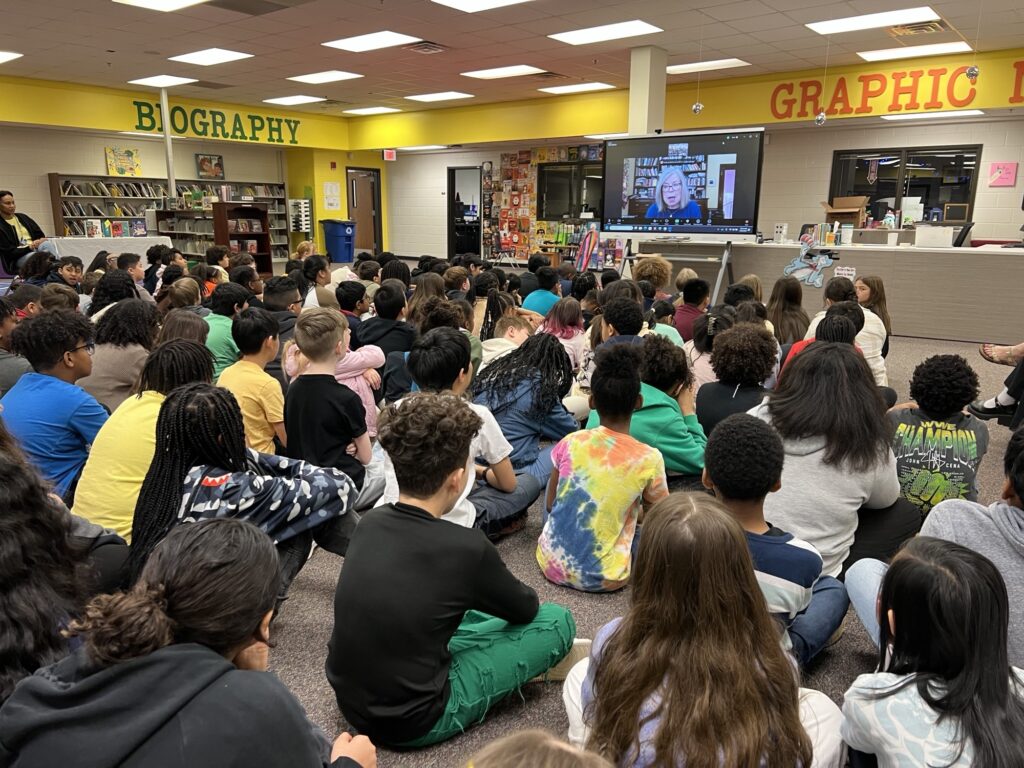
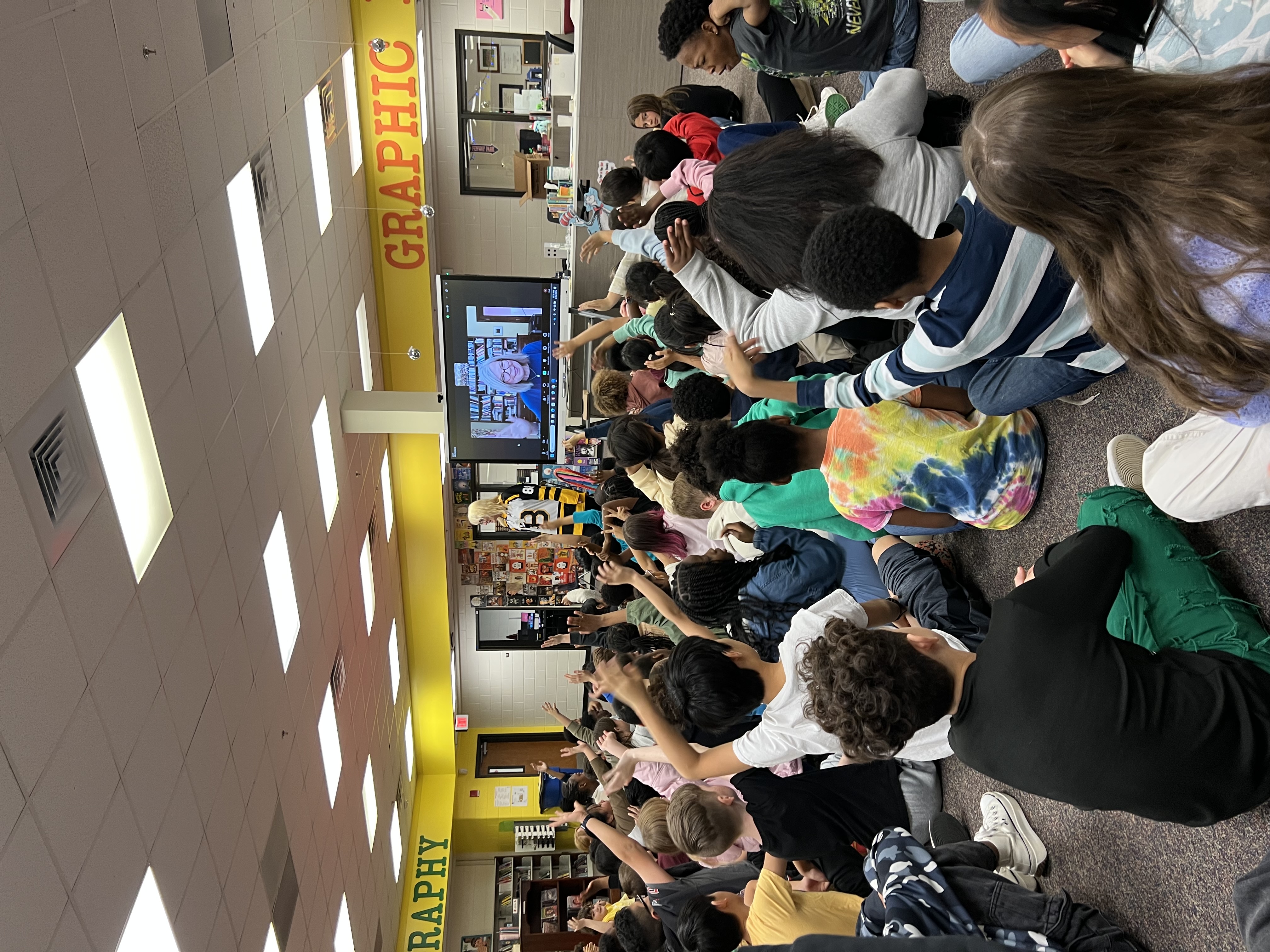
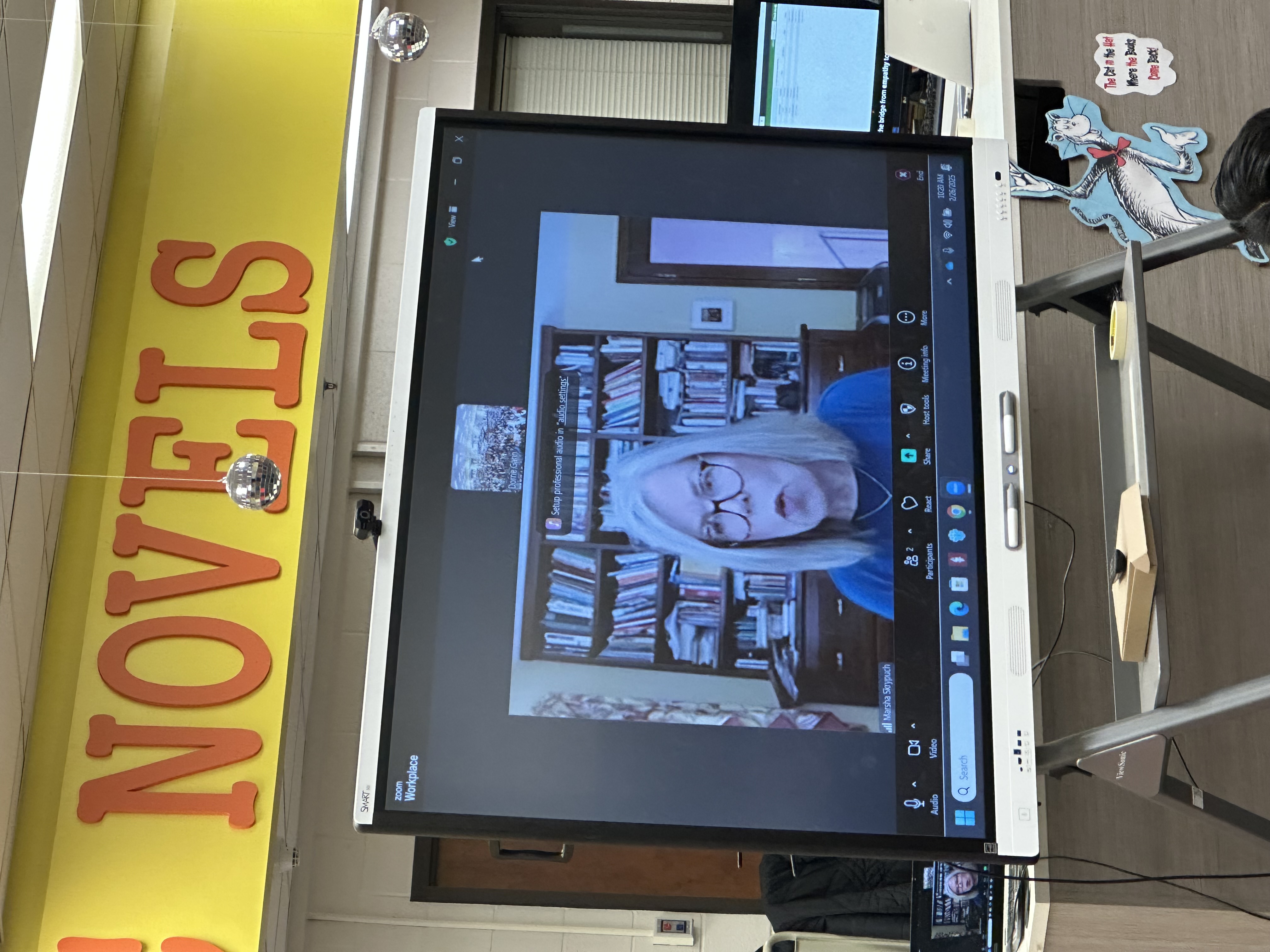
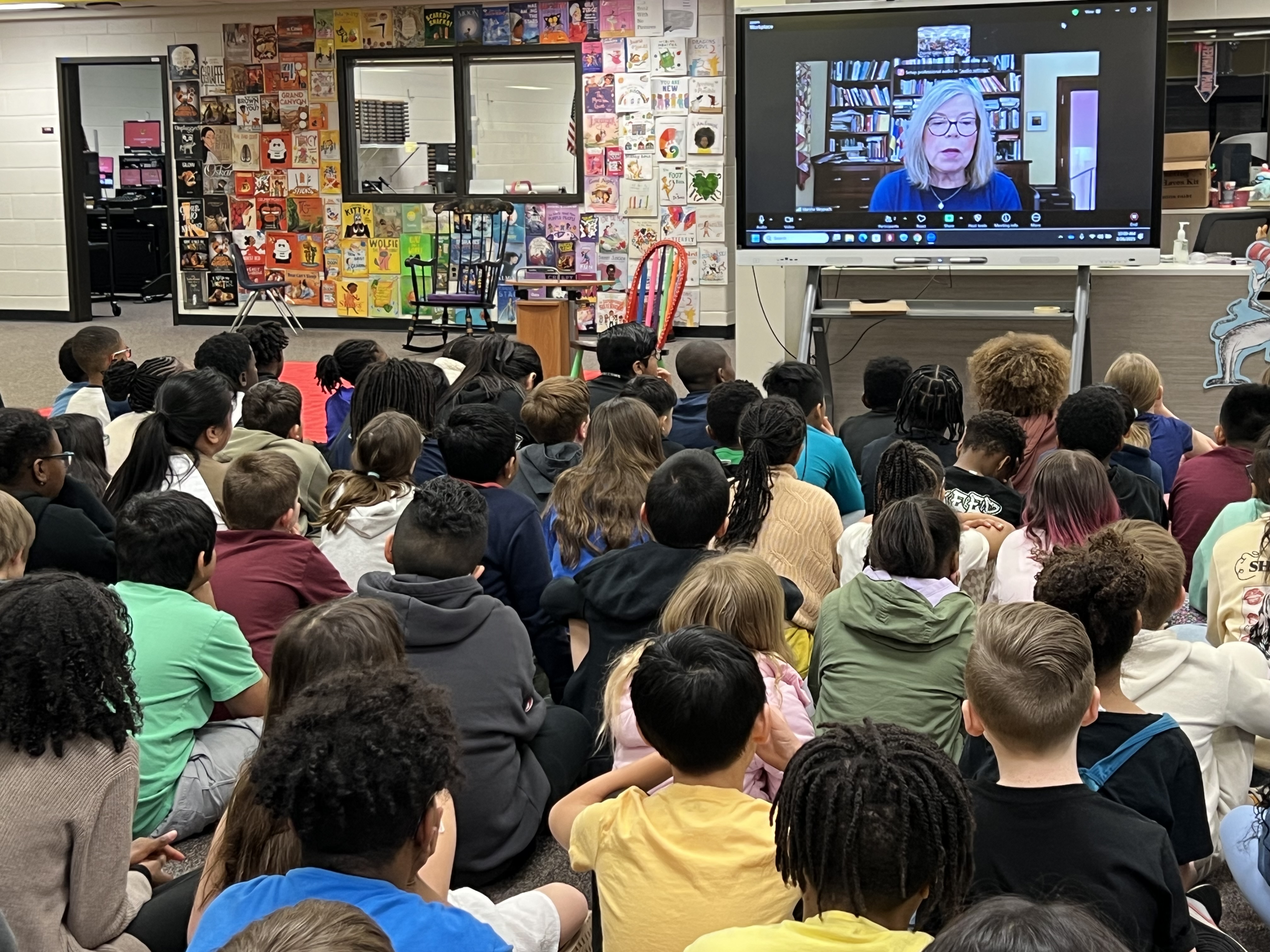
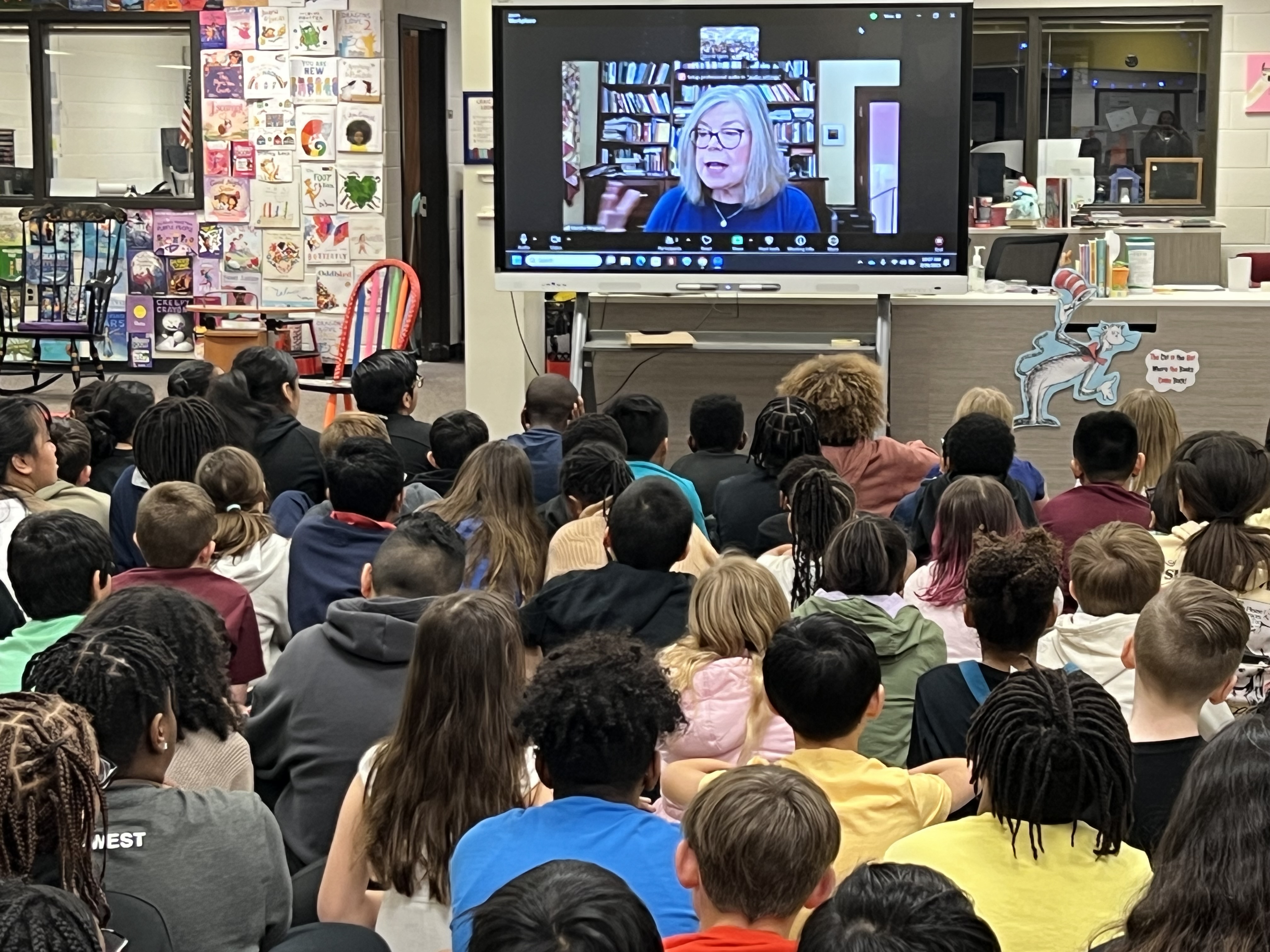
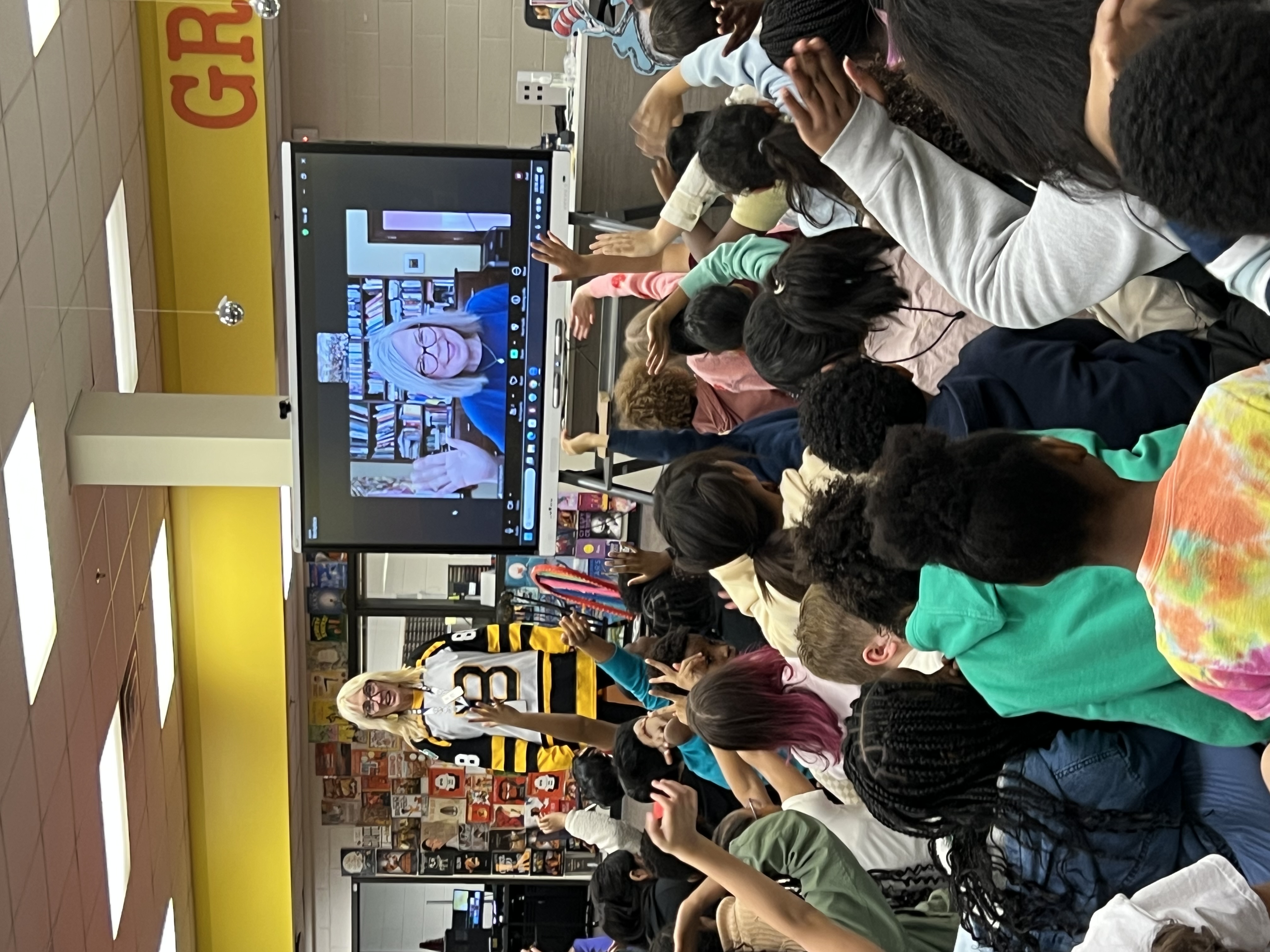

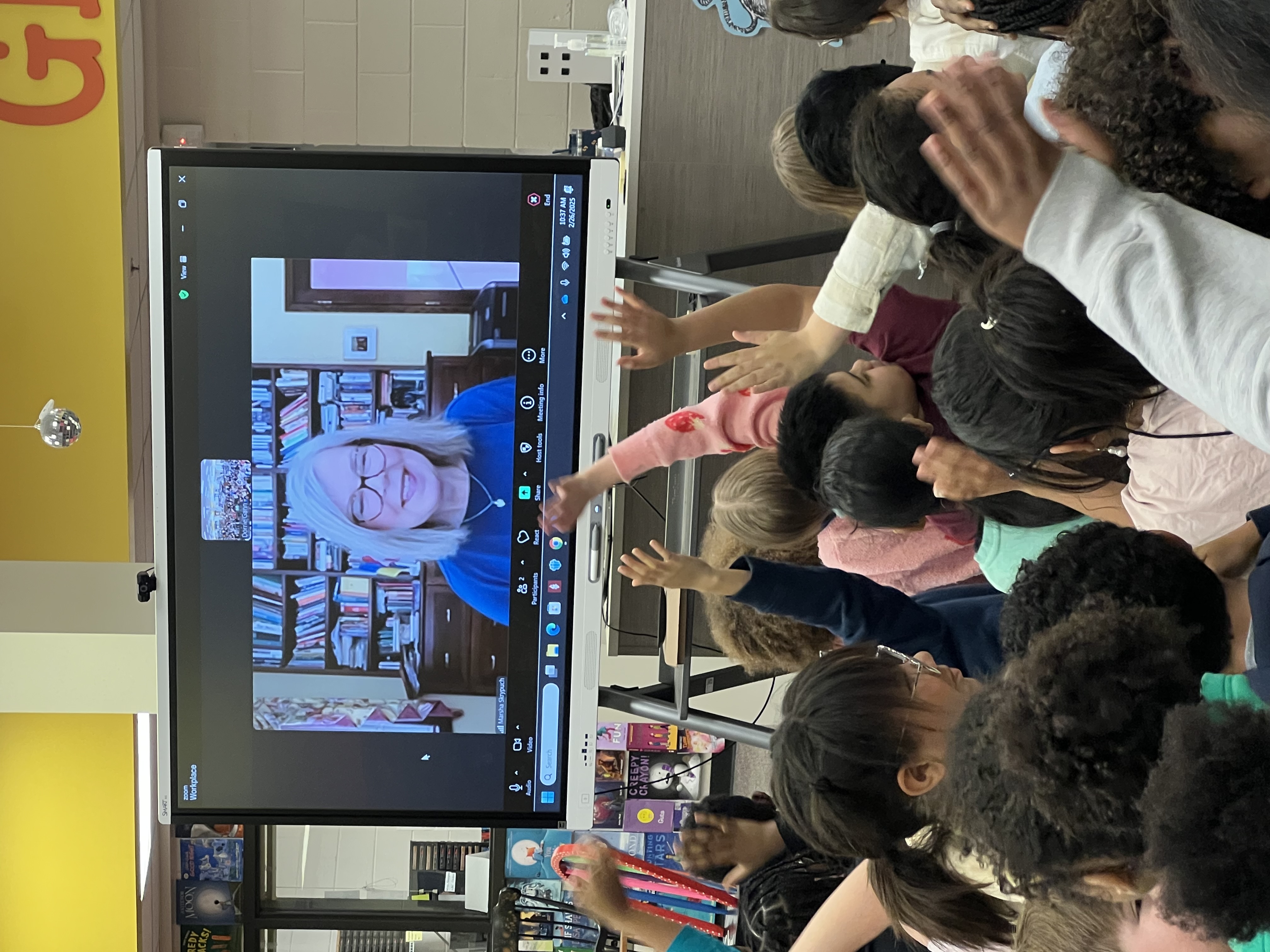
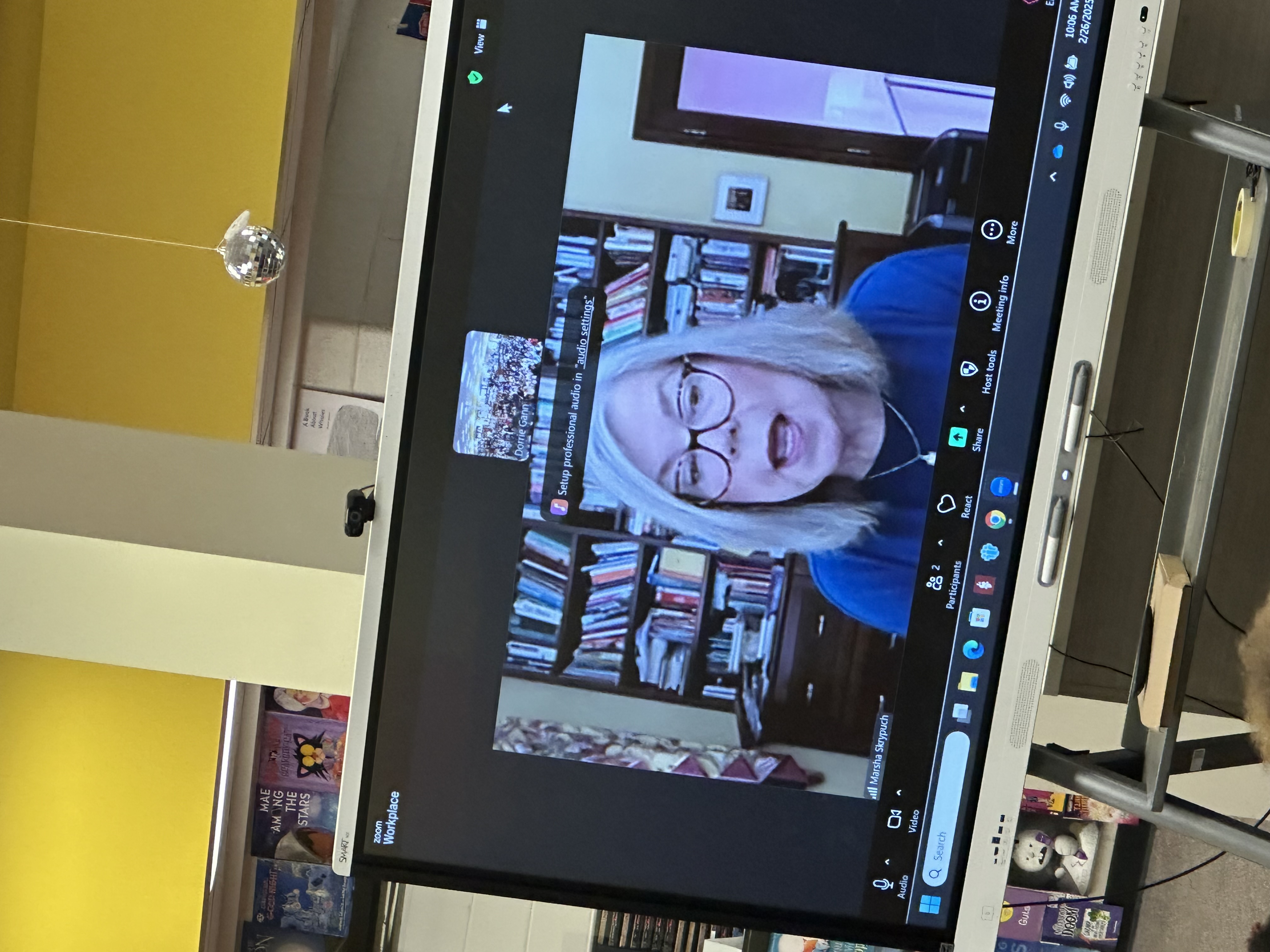




Thank you, Paulette MacQuarrie, for this great interview with myself and Chrystyna about our books for kids that are set during Russia’s war upon Ukraine. I consider Chrystyna’s book to be somewhat of a prequel to mine, since hers is set in 2014, during the invasion of Crimea, while mine is set in Feb 2022 in Mariupol, when Russia continued its war. The book in the middle, Ukrainian Food Flair, was edited by Paulette and is available on Amazon. The recipes are GREAT — especially the sweets!
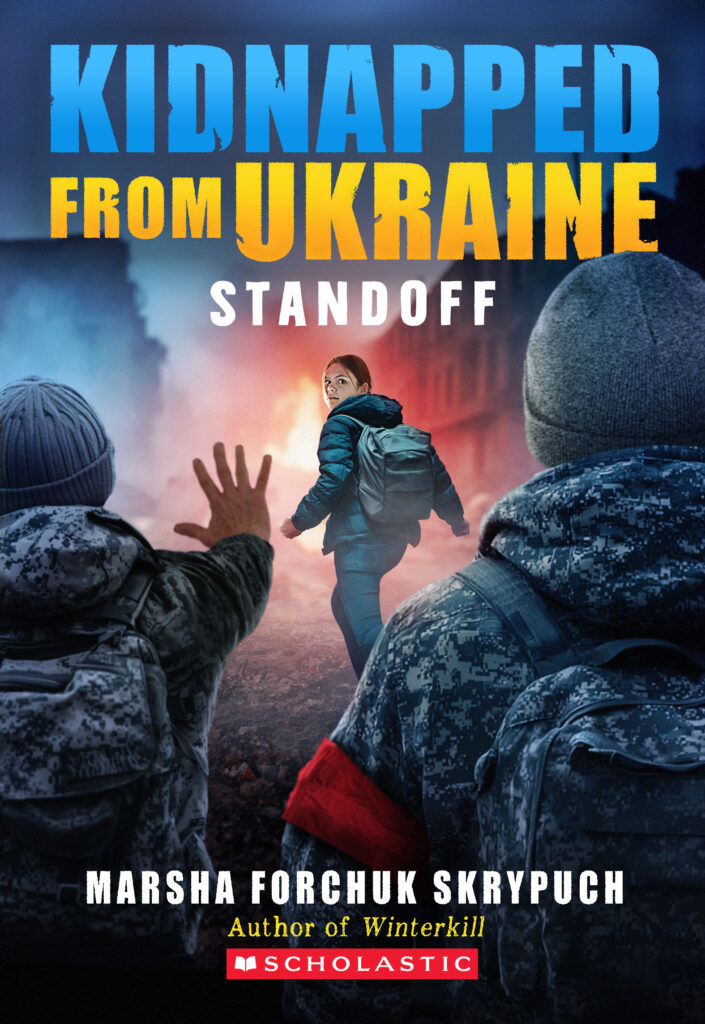
Book #2 of my Kidnapped from Ukraine trilogy will be published on Oct 7, 2025.
This gripping, accessible novel by celebrated Ukrainian Canadian author Marsha Forchuk Skrypuch follows two sisters as they struggle to survive the Russian invasion of Ukraine in February 2022.
12-year-old twin sisters Rada and Dariia Popkova couldn’t be more different. Dariia is outgoing and chatty while Rada is quieter and artsy. But what they have in common is their love for each other and their home. The family lives in the Ukrainian city of Mariupol, which is attacked by the Russians on Feb 24th, 2022. The attack separates the family — Dariia is with her mom and Rada with her dad.
Standoff follows Rada and her father as they navigate the treacherous journey from shelter to shelter and make their way to the Azovstal plant so that her father can fight in the resistance. Meanwhile, Rada is still trying to get in contact with her sister and mother. As the war rages and each family member must contend with their own battles, their love for their country and their family keeps them going.
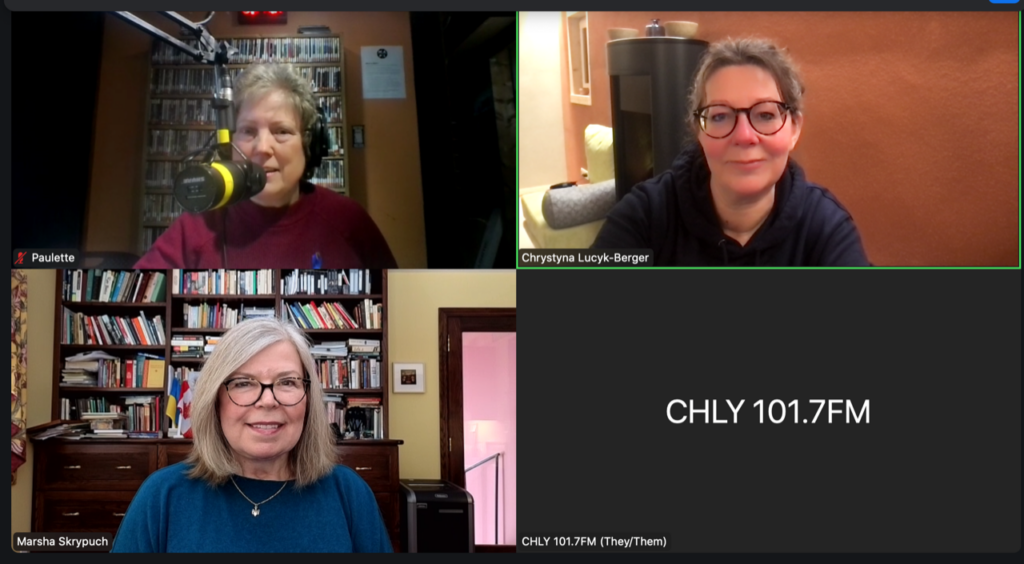
Had a great conversation hosted by Paulette MacQuarrie’s Nash Holos Ukrainian Roots Radio with Chrystyna K. Lucyk-Berger about our new books, both set during Russia’s war on Ukraine. Paulette is also an author. She compiled a fantastic Ukrainian cookbook. The interview was live, but will be available as a youtube video and podcast later on.

